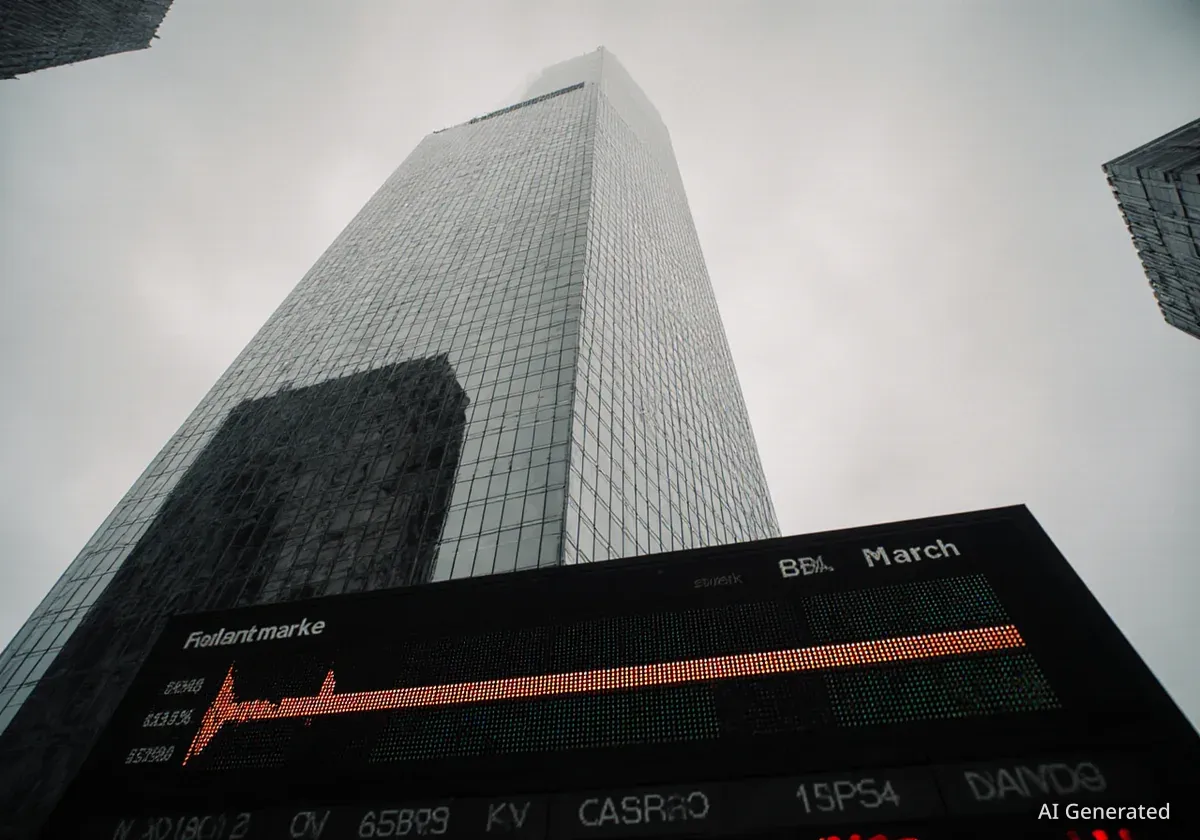OpenAI, the company behind ChatGPT, has assembled a team of more than 100 former investment bankers to train its artificial intelligence systems on complex financial tasks. The initiative, part of a confidential project, aims to automate the demanding and time-consuming work traditionally performed by junior analysts on Wall Street.
This strategic move signals a significant push by the AI leader to develop specialized, high-value applications for the enterprise market, with a direct focus on the financial services industry. The project involves talent from some of the world's most prominent financial institutions.
Key Takeaways
- OpenAI has hired a team exceeding 100 former investment bankers.
- The team is training AI to perform financial modeling and other analytical tasks.
- This initiative is part of an internal project codenamed 'Mercury'.
- Recruits include former employees from top firms like Goldman Sachs, JPMorgan Chase, and Morgan Stanley.
- The goal is to automate the 'grunt work' of junior banking roles, potentially reshaping Wall Street's workforce.
Project 'Mercury' Targets Wall Street Workflows
Internal documents reveal the initiative is operating under the codename 'Project Mercury'. The core mission of this project is to teach OpenAI's advanced AI models the intricate processes of financial modeling, valuation analysis, and other foundational tasks that form the bedrock of investment banking.
These tasks often involve long hours of data collection, spreadsheet management, and report generation. By training AI on these specific workflows, OpenAI aims to create a tool that can significantly reduce the manual labor required, freeing up human analysts to focus on higher-level strategic thinking.
The project underscores a broader strategy at OpenAI to move beyond general-purpose chatbots and create powerful, industry-specific tools. The financial sector, with its data-intensive and often repetitive analytical work, represents a prime target for this kind of AI-driven disruption.
A New Breed of AI Trainers
The composition of the 'Mercury' team is notable. Instead of relying solely on software engineers and data scientists, OpenAI has specifically sought out individuals with direct, hands-on experience in the world of high finance.
The group includes former employees from a who's who of Wall Street giants, including:
- Goldman Sachs Group Inc.
- JPMorgan Chase & Co.
- Morgan Stanley
These former bankers provide the subject matter expertise necessary to ensure the AI learns the nuances of financial analysis correctly. Their role involves creating high-quality datasets, providing feedback on the AI's outputs, and guiding the models to replicate the complex logic used in real-world financial scenarios.
By the Numbers
The team assembled for Project Mercury consists of more than 100 former finance professionals, a significant investment in specialized human capital to advance AI capabilities in a specific vertical.
The Future of Junior Bankers
The explicit goal of Project 'Mercury' is to replace the hours of 'grunt work' that have long been a rite of passage for junior bankers. For decades, recent graduates entering the industry have spent years building complex financial models in Excel, preparing pitch books, and running valuation analyses—often working 80- to 100-hour weeks.
If successful, OpenAI's technology could fundamentally alter this dynamic. An AI capable of instantly generating accurate financial models from a simple prompt would eliminate the need for much of this manual labor. This raises significant questions about the future structure of investment banking teams and the career paths of young professionals.
"This project underscores the urgency at OpenAI to make its technology more useful to businesses," noted one source familiar with the company's strategy. "They are moving from general intelligence to specialized, practical applications that can solve real-world business problems."
While some see this as a threat to entry-level jobs, others argue it could improve the quality of work for junior employees. By offloading tedious tasks to AI, banks could allow their analysts to engage in more client-facing activities, strategic planning, and creative problem-solving earlier in their careers. This could also lead to a better work-life balance in an industry notorious for burnout.
A Broader Trend of AI in Finance
OpenAI is not alone in its pursuit of the financial services market. Many major banks and financial technology firms are already experimenting with or deploying AI for various purposes, including fraud detection, algorithmic trading, and customer service. However, OpenAI's direct effort to automate the core analytical work of investment banking with a dedicated team of former insiders represents a more aggressive and potentially transformative approach.
Implications for the Financial Industry
The development of a sophisticated financial AI tool by a company like OpenAI could have wide-ranging effects on the industry. It could level the playing field, giving smaller boutique firms access to analytical power that was once the domain of large banks with massive teams of analysts.
Furthermore, it could accelerate deal-making and investment analysis, allowing firms to evaluate more opportunities in less time. This increased efficiency could lead to more dynamic and competitive capital markets.
However, it also introduces new challenges. Financial institutions will need to consider the risks associated with relying on AI for critical analysis, including potential errors or biases in the models. There will also be a need for new skills, with a greater emphasis on prompting, validating, and interpreting AI outputs rather than building models from scratch.
The success of Project 'Mercury' is not guaranteed, but the scale of OpenAI's investment and the caliber of the team it has assembled indicate a serious commitment. The project represents a clear signal that the AI revolution is no longer a theoretical concept for Wall Street but an active force poised to reshape its most fundamental operations.





